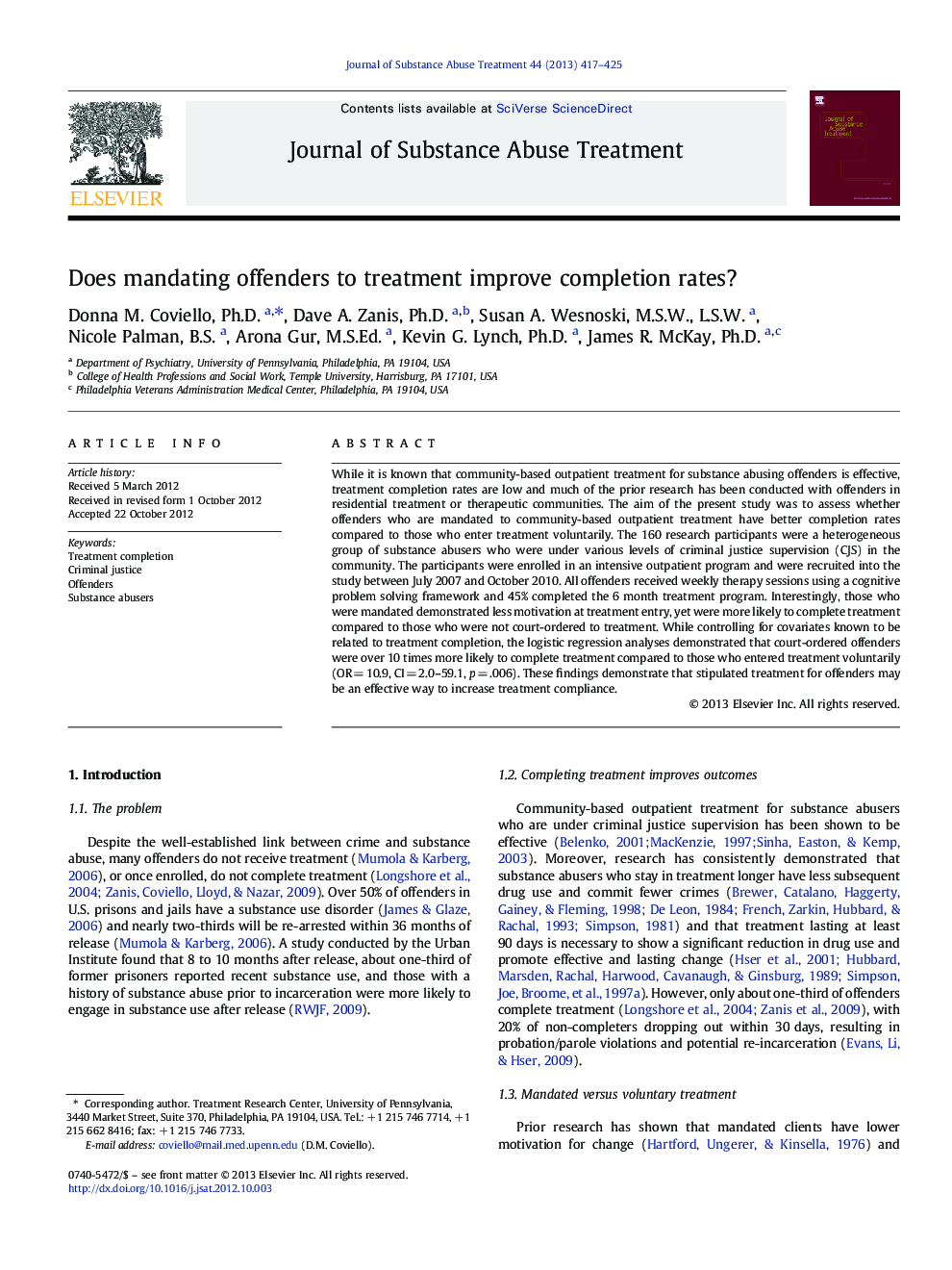| Article ID | Journal | Published Year | Pages | File Type |
|---|---|---|---|---|
| 329005 | Journal of Substance Abuse Treatment | 2013 | 9 Pages |
While it is known that community-based outpatient treatment for substance abusing offenders is effective, treatment completion rates are low and much of the prior research has been conducted with offenders in residential treatment or therapeutic communities. The aim of the present study was to assess whether offenders who are mandated to community-based outpatient treatment have better completion rates compared to those who enter treatment voluntarily. The 160 research participants were a heterogeneous group of substance abusers who were under various levels of criminal justice supervision (CJS) in the community. The participants were enrolled in an intensive outpatient program and were recruited into the study between July 2007 and October 2010. All offenders received weekly therapy sessions using a cognitive problem solving framework and 45% completed the 6 month treatment program. Interestingly, those who were mandated demonstrated less motivation at treatment entry, yet were more likely to complete treatment compared to those who were not court-ordered to treatment. While controlling for covariates known to be related to treatment completion, the logistic regression analyses demonstrated that court-ordered offenders were over 10 times more likely to complete treatment compared to those who entered treatment voluntarily (OR = 10.9, CI = 2.0–59.1, p = .006). These findings demonstrate that stipulated treatment for offenders may be an effective way to increase treatment compliance.
